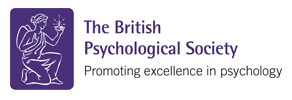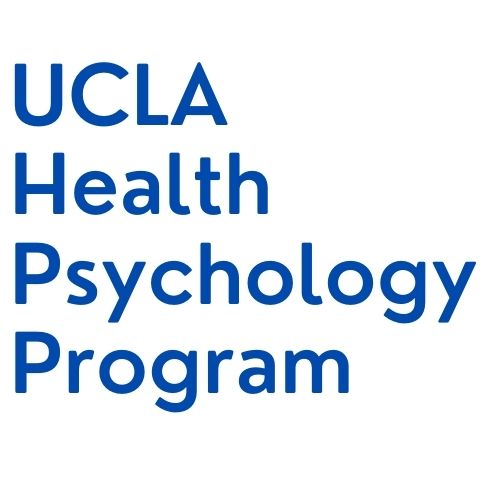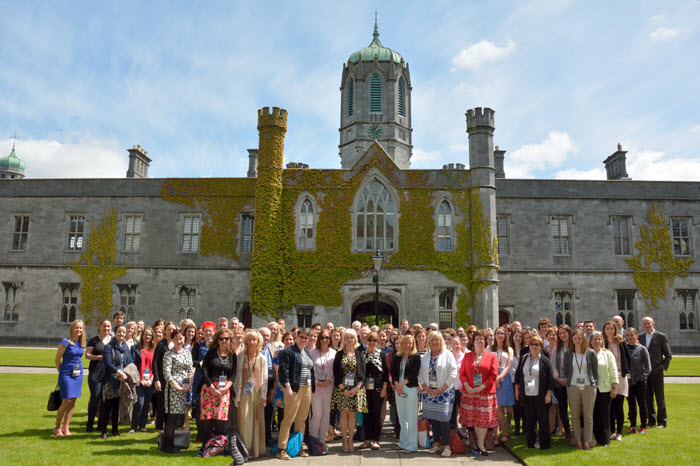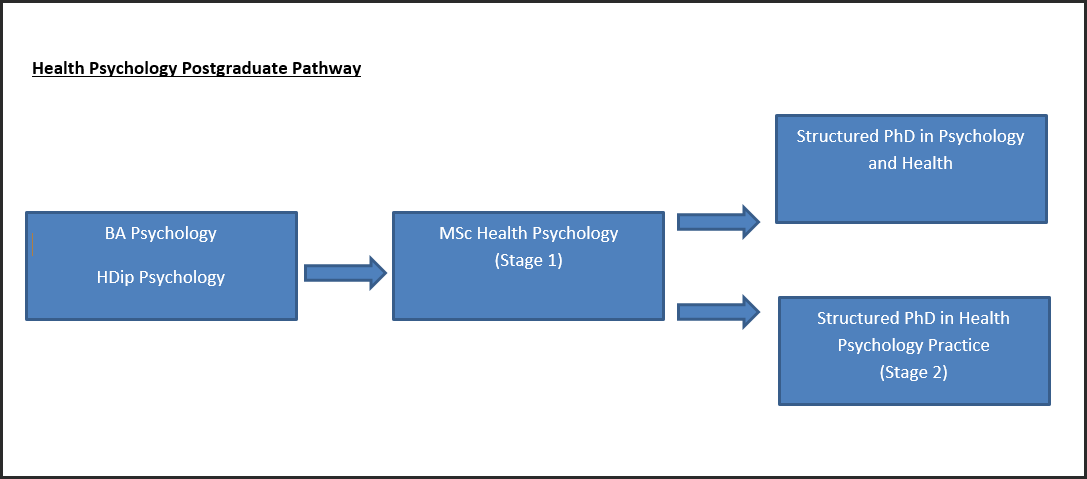We use cookies to help our site work, to understand how it is used, and to tailor ads that are more relevant to you and your interests.
By accepting, you agree to cookies being stored on your device. You can view details and manage settings at any time on our cookies policy page.


Health Psychology PhD
Key information, part-time - 8 years, full-time - 4 years.
Research brochure
Register for updates
Webinars and events
Why choose this programme
- Contribute to a rapidly evolving area of practice and research that is becoming increasingly relevant to modern society.
- Benefit from our expertise in qualitative and quantitative methodologies (using subjective measures, objective measures and biological assessments of health).
- Conduct research in our multimillion-pound facilities.
- Upon successful completion of this PhD, gain the Stage 2 requirements needed to register with the Health and Care Professions Council (HCPC) to work with patients as a practitioner psychologist (health psychologist).

A week in the life of a postgraduate research psychology student
What you will study
During your Stage 2 training you will work independently to evidence the five core competencies, including:
- Generic professional
- Psychological interventions
- Consultancy
- Teaching and training.
You will gather evidence of competency in these five core areas for your portfolio.
In your first year you will focus on the design of your PhD and complete four compulsory training courses covering quantitative and qualitative research methods, professional academic skills, and teaching and training. You will also familiarise yourself with relevant literature, create a research plan, develop your methodological and analytic skills, and complete your first study.
You will develop research methods and improve your communication skills to effectively convey your findings. You will collect and analyse data, complete a detailed literature review and then write up your PhD thesis. Depending on your research area, data collection can take place in schools, hospitals, laboratories or online.
Throughout your registration you will also work on your Stage 2 competencies by applying the knowledge you covered at Stage 1 (your MSc in Health Psychology) alongside working on your PhD. Your PhD will partly fulfil the research competency and may also fulfil some of the other competencies, depending on the research studies. The other competencies will need to be completed with additional studies or the placement.
Examples of research topics
Our current students are researching topics including:
- Factors associate with prostate cancer screening
- Cognitive, emotional and physiological factors implicated in the recovery-from-work process
- Symptom perception and the cross over between physical and mental symptoms
- The role of illness-related rumination in psychological and physical health outcomes in those living with cancer
- Weight bias and weight management.
As part of your training, you’ll complete a work placement, giving you the opportunity to develop your consultancy skills.
You will have a confirmation assessment to formally review your project. If you're a full-time student, this will take place around 12-15 months into your studies or 24-30 months if you’re studying part-time. You’ll be required to submit a written report and successfully complete an oral examination.
Your final assessment for your PhD will be based on the presentation of your research in a written thesis, which will be discussed in a viva examination with at least two examiners. You have the option of preparing your thesis as a monograph (one large volume in chapter form) or in publication format (including chapters written for publication), subject to the approval of your supervisors.
You will also submit your Stage 2 Health Psychology portfolio to reflect the work completed for the required competencies. This will be completed with the support of Dr Bridget Dibb and will be evaluated by an external examiner.
Professional recognition
PhD - British Psychological Society (BPS) Accredited against the requirements for the Graduate Basis for Chartered Membership (GBC) of the British Psychological Society (BPS).
PhD - Health and Care Professions Council, the (HCPC) Approved by the Health and Care Professions Council (HCPC) for the purpose of providing eligibility to apply for registration with the HCPC as an operating department practitioner.
Teaching methods
You will be taught through a combination of:
- A work placement
- Individual study.
Conferences
Each year we run a postgraduate research conference where you’ll be able to present your work and network with fellow researchers. You can also attend external conferences that are relevant to your area of research.
Careers and graduate prospects
On successful completion of this PhD, you’ll have the Stage 2 requirements needed to register with the Health and Care Professions Council (HCPC) to work as a Health Psychologist. You’ll also have the requirements needed for the Graduate Basis of Chartered Membership of the British Psychological Society (BPS).
Research support
The professional development of postgraduate researchers is supported by the Doctoral College , which provides training in essential skills through its Researcher Development Programme of workshops, mentoring and coaching. A dedicated postgraduate careers and employability team will help you prepare for a successful career after the completion of your PhD.
Progress reviews
In addition to the confirmation process, you’ll have six-monthly progress reviews with your supervisors. These meetings are an opportunity to reflect on your progress, discuss successes and challenges and set targets for the next six months. These reviews will be monitored by postgraduate research directors and recorded on your student record.
You’ll also have one formal meeting with your supervisors every month and can expect to have more frequent meetings between these. The regularity of these will depend on the nature and stage of your project.
Studentships
Quantitative genetics of neurodevelopment.

Research themes
Our Health Psychology research group has four broad research areas:
- Chronic conditions including obesity, diabetes, coronary heart disease and brain injury
- Health behaviours and behaviours change including eating, exercise and sleep
- Risk appreciation, governance and policy processes including food contaminants and toxicants, smoking, genetic conditions and sexually transmitted diseases
- Health, stress and fatigue including strategies for managing work-life balance and stress as experienced by members of the emergency services.
Our academic staff
For the research component of your PhD, you’ll have two supervisors from the School of Psychology.
For the Stage 2 elements, you’ll be supervised and supported by registered Health Psychologist and Chartered Psychologist, Dr Bridget Dibb . All your supervisors will give you academic guidance and tuition, help you develop your research ideas and plans, consider your theory and methods, and analyse your work. They will read and comment on your draft work, giving you honest and constructive feedback. They will also provide you with pastoral support and advice, referring you to more specialist services where necessary.
Research group
Research facilities.
Our psychology facilities will give you access to the latest equipment, including a six-room virtual reality suite to simulate real-life scenarios, a magnetic resonance imaging (MRI) scanner, where you can perform neuroimaging and observe the brain in action, and two observation laboratories.
With our equipment you can conduct experiments using electroencephalography (EEG), transcranial direct current stimulation (tDCS) and transcranial magnetic stimulation (TMS). You'll also be able to monitor eye tracking and physiological measures such as earlobe temperature, heart rate and galvanic skin response, in our laboratories and remotely, using mobile data loggers.

Sophia Quirke-McFarlane
From speaking with graduates, I knew Surrey had great facilities, support systems, and a super friendly and welcoming School of Psychology.

Sarah-Jane Stewart
My research project uses quantitative and qualitative research methods to investigate the construct of weight bias, exploring whether national obesity prevalence rates, personal exposure to obesity and weight normalisation, can predict weight bias, and much more.

Entry requirements
Applicants are expected to hold an upper second-class (2:1) UK degree (65 per cent or above) in psychology (or a related discipline).
Students must also:
- Be a graduate member of the British Psychological Society (BPS) or hold the Graduate Basis for Chartership (GBC)
- Hold the BPS Stage 1 Qualification in Health Psychology (e.g. MSc Health Psychology).
International entry requirements by country
English language requirements.
IELTS Academic: 6.5 or above (or equivalent) with 6 in each individual category.
These are the English language qualifications and levels that we can accept.
If you do not currently meet the level required for your programme, we offer intensive pre-sessional English language courses , designed to take you to the level of English ability and skill required for your studies here.
Application requirements
Applicants are advised to contact potential supervisors before they submit an application via the website. Please refer to section two of our application guidance .
After registration
Students are initially registered for a PhD with probationary status and, subject to satisfactory progress, subsequently confirmed as having PhD status.
Selection process
Selection is based on applicants:
- Meeting the expected entry requirements
- Being shortlisted through the application screening process
- Completing a successful interview
- Providing suitable references.
Student life
At Surrey we offer the best of both worlds – a friendly campus university, set in beautiful countryside with the convenience and social life of Guildford on your doorstep.
Start date: October 2024
Start date: January 2025
Start date: April 2025
Start date: July 2025
- Annual fees will increase by 4% for each year of study, rounded up to the nearest £100 (subject to legal requirements).
- Any start date other than September will attract a pro-rata fee for that year of entry (75 per cent for January, 50 per cent for April and 25 per cent for July).
View the list of fees for all postgraduate research courses.
Additional costs
There are additional costs that you can expect to incur when studying at Surrey.
A Postgraduate Doctoral Loan can help with course fees and living costs while you study a postgraduate doctoral course.
Apply online
If you are applying for a studentship to work on a particular project, please provide details of the project instead of a research proposal.
Read our application guidance for further information on applying.
To apply online first select the course you'd like to apply for then log in.
1. Select your course
Select the course you wish to apply for.
To apply online sign in or create an account.
Code of practice for research degrees
Surrey’s postgraduate research code of practice sets out the University's policy and procedural framework relating to research degrees. The code defines a set of standard procedures and specific responsibilities covering the academic supervision, administration and assessment of research degrees for all faculties within the University.
Download the code of practice for research degrees (PDF) .
Terms and conditions
When you accept an offer to study at the University of Surrey, you are agreeing to follow our policies and procedures , student regulations , and terms and conditions .
We provide these terms and conditions in two stages:
- First when we make an offer.
- Second when students accept their offer and register to study with us (registration terms and conditions will vary depending on your course and academic year).
View our generic registration terms and conditions (PDF) for the 2023/24 academic year, as a guide on what to expect.
This online prospectus has been published in advance of the academic year to which it applies.
Whilst we have done everything possible to ensure this information is accurate, some changes may happen between publishing and the start of the course.
It is important to check this website for any updates before you apply for a course with us. Read our full disclaimer .
Course location and contact details
Campus location
Stag Hill is the University's main campus and where the majority of our courses are taught.
University of Surrey Admissions
University of Surrey Guildford Surrey GU2 7XH
Professional Doctorate Health Psychology
Our experienced health psychologists and placement learning will prepare you to become an independent scientist-practitioner in Health Psychology.
- Award DPsych
- Start date January 2025
- Application deadline $value
- Duration Full-time: 36 months; part-time: 72 months
- Mode of study full time, part time
- Delivery on campus
Accreditations
Health and Care Professions Council, British Psychological Society

Health Psychology can help to address health challenges affecting people’s day to day lives, prevent illness and foster health and well-being.
This course will train you to develop scientific and practitioner skills in Health Psychology, and to be eligible to become a health psychologist. It is based on real-world placement learning, and includes regular teaching and workshops.
You'll acquire specific competencies as defined by the British Psychological Society. You'll also gain competence in carrying out a piece of high quality empirical research to a standard publishable in peer review journals.
Supervision is provided by the experienced and enthusiastic health team in Psychology. We have an excellent international reputation in the field of Health Psychology with a record of high quality research into health and health behaviour.
International candidates are expected to commence and undertake most of their training in the UK.
Top-up Research Doctorate in Health Psychology
The Professional Doctorate award is also available for study via a two year part-time top-up research doctorate route. Applicants who already hold a doctoral level (practitioner) qualification in Health Psychology via the British Psychological Society (QHP), and are eligible for registration with the Health and Care Professions Council (HCPC) as a ‘Health Psychologist’ will be eligible to complete the research module for award of the Professional Doctorate degree.
Students following this route will be required to complete the ‘Applied Research in Health Psychology’ module, via one-to-one supervision.
Top reasons to study with us
Course objectives.
On successful completion of this course, you will be able to:
- show an advanced knowledge of Health Psychology theory, research and methods;
- develop, deliver and evaluate evidence-based health interventions;
- maintain high ethical and professional standards in Health Psychology practice and research;
- provide consultancy for individuals, teams or organisations;
- design, deliver and evaluate training courses in Health Psychology.
Professional accreditation
On successful completion of this 'Stage 2' training, you'll be eligible for registration with the Health and Care Professions Council (HCPC) under the protected title of ‘Health Psychologist’.
You will also be eligible to apply for full membership of the Division of Health Psychology and can become a BPS Chartered Health Psychologist .
This Professional Doctorate Health Psychology degree is fully accredited and commended by the British Psychological Society.
Work placements
Placements are an integral part of this course and you can work in a wide range of settings, including the NHS, local government, health and social care, third sector (charities) or other organisations. In most cases you'll identify your own main placement, and this will need to be organised and approved as part of the application and admissions process. Placements can be paid or unpaid, in your own workplace or elsewhere, or can be carried out on a voluntary basis.
Placements must cover at least two broad areas of work. This could be one main placement supplemented by shorter pieces of work elsewhere, or by time split more or less equally between two placements, or they can be sequential over time.
International candidates are expected to start and undertake most of their training in the UK.
Examples of placements with our current trainees include:
- working with a mental health charity, providing health behaviour interventions for clients and training staff who provide support for people with complex behavioural problems in GP practices;
- providing training for hospital staff in motivational approaches and behaviour change, and contributing to staff well-being support;
- working with people with learning disabilities;
- working in primary care to deliver health psychology interventions.
Study abroad
Plans to undertake part of the qualification abroad should be discussed well in advance with the coordinating supervisor or course team. For placements abroad, supervision requirements will be as for the existing course.
Flexible learning
If you’re interested in studying a module from this course, the Postgraduate Certificate or the Postgraduate Diploma then please email Graduate Admissions to discuss your course of study.
Entry requirements
Academic requirements.
Applicants must:
- hold a good (2:1 or above) honours degree in psychology;
- be a graduate member of the BPS or hold the Graduate Basis for Chartered Membership (GBC);
- have successfully completed a BPS Accredited (Stage 1) MSc Health Psychology within the past 5 years to a minimum of merit grade or equivalent.
The University of Stirling has been operating a very successful MSc in Health Psychology since 2003. You can apply for a place on this MSc if you do not currently meet this entry requirement.
International entry requirements
View the entry requirements for your country.
Application procedure
Apply for Professional Doctorate
The online application process requires personal information and evidence of academic ability. It also gives you the opportunity to upload the following supporting documents:
- University postgraduate taught application form (includes personal statement for all, and expression of interest for 'top-up' only)
- Academic transcripts (undergraduate degree, BPS Approved MSc Health Psychology),
- Evidence of graduate membership of British Psychological Society
- Names of two referees (one of whom must be academic)
- Placement and Training Plans
- (if applying for Recognition of Prior Learning) RPL evidence including written statement, certificate/award and transcript of results detailing prior learning
As part of the admissions process, you are asked to complete a Placement and Training Plan . This is to show us that there are realistic opportunities and plans for undertaking supervised practice as expected of a trainee health psychologist.
The closing date for applications is mid October (contact the programme administrator for more information - [email protected] ).
If your application is acceptable, you will be invited for interview in early November. Those offered a conditional place on the programme following interview will work with the course team to ensure their placement is acceptable. The placement will be visited by a member of the team who will carry out the required checks. A series of other checks, including your Fitness to Practise, will be completed before your offer is finally confirmed.
Apply for top-up doctorate
Applicants for the Top-up Doctorate should apply by submitting an expression of interest and selecting a research supervisor from the Health and Well-being Research area in the Psychology Division of the Faculty of Natural Sciences.
Your submission should include an outline research proposal, which will be discussed with your potential supervisor before taking forward your application.
Depending on the context and topic area of research, you may be asked to complete some of the placement documents and checks described above as part of your application.
You will also be required to submit certificated evidence of:
- successful completion of the British Psychological Society Qualification in Health Psychology (QHP);
- eligibility for entry to the HCPC Register (Health Psychologist).
Apply for top-up doctorate .
English language requirements
If English is not your first language you must have one of the following qualifications as evidence of your English language skills:
- IELTS Academic or UKVI 7.0 with a minimum of 6.5 in each sub-skill.
- Pearson Test of English (Academic) 67 overall with a minimum of 62 in each sub-skill.
- IBT TOEFL 94 overall with 19 in reading, 24 in writing, 20 in listening and 22 in speaking.
See our information on English language requirements for more details on the language tests we accept and options to waive these requirements.
Pre-sessional English language courses
If you need to improve your English language skills before you enter this course, our partner INTO University of Stirling offers a range of English language courses. These intensive and flexible courses are designed to improve your English ability for entry to this degree.
Find out more about our pre-sessional English language courses .
Course details
The course focuses on developing high quality practice and research skills and your capacity to work as an independent scientist-practitioner. It emphasises person-centred and collaborative ways of working, which are characteristic of Health Psychology approaches.
This course will aim to prepare you for working in multidisciplinary contexts, in the context of the Scottish and UK Government targets for improvement of the nation’s health. This acknowledges the interplay of biological, psychological, socio-economic and cultural factors.
Psychology at the University of Stirling has a long history of collaboration with local and national health care providers, and community groups. Course team members have been involved in many collaborative research projects, teaching and professional consultancy. Existing links to the local, national and international health and healthcare community will be fostered and developed in the Professional Doctorate. Stirling is also committed to increasing patient and public involvement (PPI) from the local community. We have PPI representatives on our Course Steering Group and will involve patient and carer groups as far as possible in different aspects of the course.
The module information below provides an example of the types of course module you may study. The details listed are for the academic year that starts in -->September 2024 -->. Modules and start dates are regularly reviewed and may be subject to change in future years.
Course Details
This course primarily focuses on placement learning, to enable you to develop as an independent scientist-practitioner in Health Psychology. You will usually be working (either full-time or part-time) in a health-related setting(s) for the duration of the course. You will need to complete a minimum of two years full-time (or equivalent) professional practice.
Although most learning takes place in the placement, the course supports this with regular short blocks of teaching: around 20 core days (with additional sessions if required) in total over the first two years of the course. Each year will have three teaching blocks: in January, May and September.
Induction week at the start of the course and two further blocks of teaching following an interactive format or skills-based learning, including sessions from HCPC-registered practitioner health psychologists or other guest lecturers (with professional registration). Teaching blocks include content relevant to the key competences of teaching and training, professional practice, psychological interventions, consultancy and research.
The second year also includes three teaching blocks.
Year 3 will primarily include one-to-one research and supervision sessions. You will be able to revisit teaching sessions from years 1 and 2 if required, and keep up your involvement with the course via regular research, training and peer support meetings.
Over the course you will have a BPS Registered Co-ordinating Supervisor who will be a member of the Health Psychology team at the University of Stirling. Throughout the course, you will be supported by individual supervision. Face-to-face meetings will be tailored to meet the needs of the individual, but will tend to be more frequent in the earlier stages of the qualification. You will also have workplace supervisors for the supervised practice element of the training.
You will study four modules in the course, described below. All modules are compulsory.
Assessment is by coursework and by research thesis which will be externally assessed and examined by viva voce. Formative feedback will be provided by the course team for all coursework before final submission. All coursework will be double-marked by a member of the course team. You will complete a portfolio of coursework and practice for each of the taught modules. Research projects will be externally examined and subject to a viva. You must pass all modules and the viva voce to obtain the qualification. You are required to pass all taught credits before progressing to the submission of the research element of the award.
Feedback on assessment
You will normally receive feedback on coursework within three weeks of completion of the assessment. Feedback is usually provided electronically on formal coursework. Feedback and Guidance sessions with teaching staff are available on all modules. These provide regular opportunities to discuss feedback further.
If you would like to know more about the way in which assessment works at the University of Stirling, please see the full version of the assessment regulations at:
Postgraduate – Taught
Postgraduate - Research
Classroom hours
There are approximately 20-33 core days of formal teaching delivered over years 1 and 2 of the full-time course. Additional optional sessions will be arranged over the course where opportunities arise. Formal taught materials will be available via SharePoint.
Course director
Dr Lesley McGregor, Senior Lecturer in Health Psychology
Professor Vivien Swanson, Professor in Health Psychology
Course Administrator: Mrs Nicola Hunt
+44 (0) 1786 466258
Fees and funding
Fees and costs.
If you need to extend your period of study or repeat study, you will be liable for additional fees. Your fees will be held at the same level throughout your course.
This fee is charged as an annual course fee. For more information on courses invoiced on an annual fee basis, please read our tuition fees policy .
Doctoral loans
If you're domiciled in England or Wales you may be eligible to apply for a doctoral loan from your regional body:
- English students can apply for a loan of up to £28,673 from Student Finance England .
- Welsh students can apply for a loan of up to £28,395 from Student Finance Wales .
Additional costs
There are some instances where additional fees may apply. Depending on your chosen course, you may need to pay additional costs, for example for field trips. Learn more about additional fees .
Scholarships and funding
Funding .
Eligible international students could receive a scholarship worth between £4,000-£7,000. See our range of generous scholarships for international postgraduate students .
University of Stirling alumni will automatically be awarded a fee waiver for the first year of Masters studies through our Stirling Alumni Scholarship .
Applicants from the UK or Republic of Ireland who hold a first-class honours degree or equivalent will automatically be awarded a £2,000 scholarship through our Postgraduate Merit Scholarship .
If you have the talent, ability and drive to study with us, we want to make sure you make the most of the opportunity – regardless of your financial circumstances.
Learn more about available funding opportunities or use our scholarship finder to explore our range of scholarships.
Cost of living
If you’re domiciled in the UK, you can typically apply to your relevant funding body for help with living costs. This usually takes the form of student loans, grants or bursaries, and the amount awarded depends upon your personal circumstances and household income.
International (including EU) students won’t normally be able to claim living support through SAAS or other UK public funding bodies. You should contact the relevant authority in your country to find out if you’re eligible to receive support.
Find out about the cost of living for students at Stirling
Payment options
We aim to be as flexible as possible, and offer a wide range of payment methods - including the option to pay fees by instalments. Learn more about how to pay
After you graduate
Careers in health psychology.
Health Psychology is a flexible and broad field of study and this is reflected in the wide variety of work that health psychologists can do. For example, within policy bodies, public health or clinical health services such as the UK NHS, and also in health and social care, in communities, workplaces and in the third sector (charitable organisations).
Examples of possible roles for qualified health psychologists are:
- delivering health assessments and management strategies for chronically ill patients, for example, those with cancer or chronic pain;
- providing rehabilitation or prehabilitation courses, e.g. for patients with coronary heart disease;
- working to support patients and carers in patient support organisations;
- behaviour change consultancy with primary health care teams in the community;
- health education and health promotion in educational or industrial settings;
- conducting evaluative research in order to provide a research evidence base for health policy decisions;
- influencing health behaviours, for example in smoking cessation courses, weight reduction groups, or with sexual health care providers;
- carrying out teaching and research for health care students in academic settings;
- teaching and training NHS health and social care professionals such as pharmacists, dentists, social workers.
Employability skills
As a qualified health psychologist you'll make high level contributions to the health and well-being of individuals, groups and communities. You'll make informed and specialist judgments on complex issues and communicate effectively to specialist and non-specialist audiences.
You'll undertake pure and/or applied research and development at an advanced level, contributing substantially to the development of new techniques, ideas, or approaches.
You will show qualities and transferable skills, to enable you to exercise personal responsibility and work as an autonomous scientist-practitioner in complex and unpredictable situations, in professional or equivalent environments.
Companies we work with
This course works collaboratively with a range of health and social care providers.
What our students said

The combination of teaching blocks and placement-based learning allowed me to develop as an independent practitioner in the workplace whilst still benefitting from competency-based training at university.
Related courses
- MSc / MA Human-Animal Interaction
- MSc Autism Research
- MSc Health Psychology
- MSc Psychological Research Methods
- MSc Psychological Therapy in Primary Care
- MSc Psychology (accredited conversion course)
- MSc Psychology of Sport (Accredited)
Which course would you like to apply for?
Search for another course

Hit enter to search or ESC to close

Health Psychology
Study options.
Professional Doctorate
First in the UK
First Stage 2 training course to be accredited by the BPS
BPS Commended
Commended for positive and strong ethos of developing reflective practice, exemplary support and widening access agenda
Tailored to your needs
You can choose which competence to work towards, and make the most of opportunities that come your way
The Professional Doctorate in Health Psychology at Staffordshire University offers a unique opportunity to experience and develop your professional skills in Health Psychology, under the guidance of highly qualified and committed staff.
Our Professional Doctorate has been delivered since 2002 and was the first Stage 2 health psychology training programme to be accredited by the British Psychological Society (BPS). It remains one of the few accredited programmes in the UK, currently attracting students who are working in different placements throughout the UK.
This course is accredited by the British Psychological Society. When you’re awarded the degree you’ll gain Stage 2 accreditation towards becoming a Chartered Psychologist and be eligible to apply to register as a Health Psychologist with the Health and Care Professions Council (HCPC). The programme offers learning and teaching opportunities in health psychology to allow students to demonstrate Level 8 (Doctoral Level) competences in research, psychological interventions, consultancy, aspects of professional practice, and teaching.
The focus of the Doctorate is on the acquisition of professional skills through placement learning, with an emphasis on reflection, professional competence , and accountability in professional practice. The programme is a research degree, and therefore also places an emphasis on research. Students will be taught in both quantitative and qualitative methods, and will be guided in supervision sessions to conduct a systematic review and empirical study. Both will be of publishable standard and will be written up as journal articles.
Staffordshire University has a thriving Health Psychology research culture, focused in the Staffordshire Centre for Psychological Research, with an excellent national and international reputation.
The Health Psychology Programmes at Staffordshire University have nine commendations from the BPS (2018). The Programme staff team are committed to principles of equality, diversity and inclusion (EDI) promoting diversity in Health Psychology. This is demonstrated across various aspects of the Programme, including selection and recruitment, and while students are training on the course.
Please note that this course requires full time students to be on placement for a minimum of two years and to pay the fees detailed per year of study. Students need to allow for an additional period of time for writing up during which there is a writing up fee to be paid each year until completion.
On successful completion of study, we will issue the following award: Professional Doctorate Health Psychology.
Important information regarding applications:
Closing date for 2024-25 applications: Monday 6 th May 2024
Interview dates: Thursday 14 th March 2024 and Thursday 13 th June 2024.
Health psychology is the study of psychological processes and their application to health, illness and healthcare. Through this course, you’ll develop competence in professional skills, as well as research, psychological interventions, teaching, and consultancy.
The qualification will provide a guarantee for employers that you’re competent in core aspects of health psychology and professional practice.
This course is accredited by the British Psychological Society. When you’re awarded the degree you’ll gain Stage 2 accreditation towards becoming a Chartered Psychologist and be eligible to apply to register as a Health Psychologist with the Health and Care Professions Council (HCPC).
We anticipate a blended earning model in 2021-22 with some sessions on campus, and others online.
The Health Psychology Programmes at Staffordshire University have nine commendations from the BPS (2018).
Please note the closing date for the Professional Doctorate in Health Psychology is 30th June 2021
Please note that this course requires part time students to be on placement for a minimum of four years and to pay the fees detailed per year of study. Students need to allow for an additional period of time for writing up during which there is a writing up fee to be paid each year until completion.
On successful completion of study, we will issue the following award: Professional Doctorate Health Psychology
Work placements
You’re expected to have a relevant health-related placement (paid or unpaid) before applying to the course. The placement will need to be formally approved prior to you joining us, and you’ll need to identify a workplace contact (who will be a suitably qualified healthcare professional, but does not need to be a psychologist) who will be willing to provide us with quarterly reports, and will be available to support you. Placements differ across trainees, if you’re concerned whether your placement is suitable, then please contact the course leaders directly.
Broadly, a placement (in effect the trainee’s place of work) can be any setting where health psychology is practised (e.g. hospitals, primary healthcare, public health and academic settings) and where you would be able to get the opportunity to complete most of the competences (i.e. teaching, research, psychological interventions and professional competence). Trainees’ placements on our Professional Doctorate are wide and varied and have included public health, research teams in universities, hospitals and health psychology business units, primary and secondary care settings, prisons, hospices and pupil referral units.
You’ll be assigned a University supervisor who will visit you and your contact at the beginning, middle and (usually) end of the placement (this visit may be online).
Sometimes you may also need to spend time in other settings to attain all the experience and skills you need to complete the course.
- Enquire about this course
- Book an Open Event
Course content
The taught elements of the course involve a programme of interactive workshops which runs throughout the year, covering five competencies.
Professional body accreditation
Approved by the Health and Care Professions Council (HCPC) for the purpose of providing eligibility to apply for registration with the HCPC as a practitioner psychologist.
Postgraduate Accreditation

The course is accredited by the British Psychological Society (BPS) as providing Stage 2 training in Health Psychology.

Psychology Facility Tour
Join Senior Lecturer Nikki for a tour around our state-of-the-art psychology facilities.
Sorry, this video requires the use of functional cookies which you have not consented to use. Change your cookie settings or watch the video on the provider's website
The tables provide an indicative list of the modules that make up the course for the current academic year. Each module is worth a specified number of credits. Our teaching is informed by research, and modules change periodically to reflect developments in the discipline.
Please note: Year 3 will be the earliest that the viva examination can take place. The exact date within that year will depend upon the time taken to write up and submit work for the different modules. Also, the course is currently going through a revalidation. Although the competences will stay the same, the titles to modules may change from September, 2022.
The tables provide an indicative list of the modules that make up the course for the current academic year. Each module is worth a specified number of credits. Our teaching is informed by research, and modules change periodically to reflect developments in the discipline. We aim to ensure that all modules run as scheduled. If for any reason a module cannot be run we will advise you as soon as possible and will provide guidance on selecting an appropriate alternative module. Please note Year 5 will be the earliest that the viva examination can take place. The date will depend upon the time taken to write up the different modules
Consultancy In Health Psychology
This module will guide you through the process of health psychology consultancy. In the interactive sessions, you will learn about all the processes of consultancy, from establishing needs of client group and negotiating with clients; through planning, managing, and monitoring consultancy work; drawing up contracts, and finally closing pieces of consultancy and evaluating outcomes. During this module you will also have the opportunity to meet a legal advisor and experienced health psychologists who have set up their own consultancies.
Module code: PSYC80753
Systematic Reviewing
This module is designed to teach you about how to conduct and write up a systematic review. This includes defining topic and search parameters, conducting a search using appropriate databases and sources, and summarising findings from the review. The completed review will be written up as a journal article.
Module code: PSYC80757
Research: From Design To Dissemination
The module is designed to guide you through the process of carrying out research in Health Psychology. Sessions will lead you through the processes of applying for ethical approval, designing the research, conducting the research, analysing the resulting data, and writing up the data for publication.
Module code: PSYC80756
Professional Skills In Health Psychology
In this module you will reflect on your development as a health psychologist. Sessions will be interactive in¿nature, and¿you will get the opportunity to share reflective practice within the sessions as well as guided reflection on real life situations. Content includes: development and maintenance of systems for legal, ethical and professional standards in health psychology; working effectively in teams; communication skills in different contexts; reflections on your development as a health psychologist and career development. There will also be sessions run by registered health psychologists working in different settings.
Module code: PSYC80752
Teaching And Training In Health Psychology
This module is designed to enable you to develop skills in all aspects of teaching, including self-reflection and evaluation. The interactive seminars will guide you through the process of teaching and evaluation, from the assessment of needs and construction of effective teaching plans, through to ensuring equality, diversity and inclusion within teaching, and finally the development of student and peer evaluations of teaching performance. You will learn how to be reflective in your teaching practice, and how to build upon your experiences.
Module code: PSYC80754
Health Psychology Interventions
This module takes you through the process of developing, conducting and evaluating psychological interventions. Sessions will be interactive in nature and will incorporate reflective practice. Content will cover: Assessment and formulation, developing, maintaining and ending a therapeutic relationship, intervention techniques, communication skills, implementing, monitoring, evaluating and disseminating interventions.
Module code: PSYC80755
Practice Learning
Practice learning is a central component of our Professional Doctorate in Health Psychology training programme. Well organised practice learning will enable you to gain professional skills and experience in the five core competences required for the Professional Doctorate. For this module you will provide an electronic repository of evidence, demonstrating your progress and reflective practice across the course of the programme.
Module code: PSYC80758
Entry requirements
Closing date for applications: Monday 6th May 2024
Dates for Interviews: 14th March (now fully booked), 13th June
You’ll need:
- An honours degree recognised by the British Psychological Society (BPS) as offering Graduate Basis for Chartered Membership
- To have completed BPS Stage 1 training in Health Psychology. That is either a BPS-accredited MSc in Health Psychology with a grade of Merit or above, or the BPS Stage 1 qualification in Health Psychology with a grade of 60% or more
- To have an approved placement
If your first language is not English, you must have achieved Level 7 on all parts of IELTS.
If you’re shortlisted, you’ll be interviewed before being admitted on to the course. In this interview you’ll need to put forward a suitable idea for an empirical study which links in with current staff research interests and show that you have access to relevant research populations though your placement. You’ll also need to show how you can complete the competences within the placement.

Science Centre
Our £30 million Science Centre in Stoke-on-Trent contains specialist laboratories with the latest state-of-the-art equipment.

Psychology Observation Suite
The Observation Suite contains an Observation Laboratory setup with a one-way mirror, video cameras and microphones to allow activities to be observed and recorded from the Control Room.
Find out more about our Science Centre Facilities .
Find out more about our Psychology Observation Suite.
This course is built around you gaining practical experience as you work towards your competencies.
- You’ll be working in a health psychology-related field through the placement you organise prior to commencing your Stage 2 studies. As such, you gain valuable experience in all elements of health psychology work, and you evidence this experience in a portfolio.
- We provide sessions on the programme where we teach you about developing a CV, applying for posts and interview skills.
- You’ll have opportunities to see other health psychologists present their work (including our own graduates), either as guest lecturers or as part of the speaker programme organised by the school.
- We have a range of graduates from our programme, who are able to mentor you, whilst you are applying for posts;
- Finally, we host a conference in July each year, organized by students, at which you’re required to present your work. We also invite workplace supervisors to attend, along with ex-students (many of whom are themselves employers). Speaking at the conference is an opportunity to showcase your work and to advertise your skills.
All of these opportunities, combined with the placement-based learning enhance your employability.
Once you’ve completed the course you can apply to the Health and Care Professions Council to become an accredited practitioner, and for full membership, including Chartered Status, of the British Psychological Society .
See the BPS website for more information about careers.
All students have access to Career Connect , our dedicated careers team.
The Professional Doctorate in Health Psychology has been designed around placement learning, where students acquire professional skills through a health-related placement. This placement learning is supported by a series of supportive interactive seminars.
Students will be taught in small groups using a variety of methods, chosen to allow them the opportunity to attain the learning outcomes for each module. These include interactive seminar sessions, student presentations on real world experiences, discussion activities, individual reflection tasks, guided reflection, online activities, role plays and contributions from our service user and carer group as well as guest speakers who are registered Health Psychologists.
Seminars are scheduled fortnightly on Wednesdays in the first year, and monthly on Thursdays in the second year. Sessions run from 10am -12 noon in the morning, and 2-4pm in the afternoon. In addition, students are expected to attend the invited speaker seminar series which is scheduled from 4-5pm in the second year. The extended lunch break between 12 noon and 2pm in the middle of the day is to enable students to meet with supervisors and module leaders for supervision.
In addition to the seminars there is a two-day Induction Programme and an annual Welcome Back meeting in September, and a Student-Led Conference which takes place in June. The Conference is an opportunity for students to build confidence in presenting their work through poster, oral presentations, or workshops. Second year students organize the Student Conference and this adds to their professional development.
All the teaching is supported by Blackboard, a virtual learning environment.
Students will initially be required to produce an individual learning plan with a Gantt Chart which details the different competences and describes their plans to complete them over the course of the programme. This is submitted to an Assessment Board for approval, in the January after students begin studying on the programme.
Once approved, students are able to complete the range of assessments, which including case studies, a consultancy contract, reflective reports, a communication skills evaluation and two journal articles with associated commentaries. All assessments involve real-life contexts and are usually based around opportunities from placement-based learning. There are two submission dates per year; these are usually in January and June. At least one piece of work needs to be passed each year, in order to progress. Work on this award is only awarded Pass or Fail.
At the end of the period of study, and when all assessments have been passed, and approved by a Progress Board, students will be asked to submit a portfolio which contains the work which has been passed and includes an Abstract. Students will then be able to progress to the Viva Examination module. All students will take part in a viva voce examination, where they will discuss their portfolio with an Internal Examiner and an External Examiner who are registered Health Psychologists usually working in a similar area of research. Students must receive pass marks in all assessments, have attended at least 80% of the supportive programme, and perform successfully at the viva examination in order to receive the Professional Doctorate qualification.
Learning support
Throughout the Professional Doctorate programme, students will be supported by individual supervision from their Staffordshire University supervisor(s). Face-to-face meetings with supervisor(s) tend to be every two weeks in the first year, and then every four weeks in the second year, although students will be expected to keep in regular contact by e-mail.
In subsequent years, students are expected to work as independent learners, where they will be working closely with their supervisors and the module leaders. Supervision sessions may either take the form of a face-to-face meeting, or via MS Teams, however, there must be a minimum of six face-to-face meetings per year. Continuing students will also be required to attend the Welcome Back programme and Annual Conference, and will be invited to the supportive programme such as the Psychology Department seminars and CPD workshops at the University throughout this time.
Additional support
If you have additional needs like dyslexia or a sensory impairment, then our Student Inclusion Services are here to help make sure nothing stands in your way.
We strongly encourage students to discuss the suitability of their placement (or other) opportunities for each piece of assessment with their supervisors and the relevant module leaders before they engage with them. The module leader will advise on whether the opportunity fits the assessment criteria requirements.
Formative methods of assessment are also used to provide feedback on progress and to assist in preparation for summative assessments (below). These include examination of 3-page plans (module leaders) and final drafts (supervisors) of pieces of assessed work and eventually the overall portfolio including a mock viva examination. Formative feedback will be provided for each piece of assessed work through e-mail, face-to-face meetings, and/or MS Teams meetings.
*Apart from the Advanced Research Methods module where the module leader will also comment on a full draft of your work.
You'll be taught by staff who have experience in different areas of health psychology.

Dr Rachel Povey
Associate Professor
I'm the course leader for the Health Psychology Professional Doctorate. My areas of expertise are healthy eating, dietary change and psychological aspects of diabetes.

Dr Gemma Hurst
Course Director
I am the Course Leader for the MSc Health Psychology. My research focuses on measuring the impact of environment exposures on health and wellbeing and exploring the wider determinants of health in relation to health inequality. I am also experie…

My expertise is within Health Psychology and conducting research employing both quantitative and qualitative methodologies.

Dr Jennifer Taylor
Senior Lecturer
Jennifer is a senior lecturer in qualitative psychological research methods. Jennifer is a qualitative researcher with research interests in several areas but mainly body image, maternal health, breastfeeding, and mindfulness.

Dr Emily Buckley
Emily is the Admissions Tutor for Health Psychology, alongside being a registered Health Psychologist with a background in health promotion.
For the course starting on 23 September 2024 the tuition fees are:
If you would like to know more about the fees listed and what this means to you then please get in touch with our Enquiries Team .
Alumni discount
If you've previously completed a Staffordshire University undergraduate degree (excluding HND and foundation degrees) you may be entitled to a discount of up to 25% off your course fees for any subsequent postgraduate taught course (terms apply, see the alumni discount page for details). If you have any questions about how this relates to you, please contact [email protected] .
If you have previously completed an undergraduate degree with us, you may be entitled to an alumni discount off your course fee for any subsequent postgraduate taught course. For further information please contact [email protected] .
Sources of financial support
Providing you are studying towards a full Masters qualification you may be able to apply for a postgraduate loan of up to £11,570 to help with tuition fees, maintenance and other associated costs. Student loans are available for many of our postgraduate degrees and are provided by the Student Loans Company (SLC). The loan can cover a wide range of postgraduate study options; part-time, full-time and distance learning.
For more information and how to apply visit masters loan .
Scholarships and additional funding
There are sometimes paid bursaries offered associated with specific placements for this course. These are advertised separately.
Our students
The doctorate was a transformative experience that shaped me into the psychologist I am today. The lecturers are experts in their fields and are passionate about teaching. I particularly enjoyed the teaching and research modules, where I gained practical skills and knowledge that were invaluable in my early career. The program also provided me with a platform to engage with the broader Health Psychology community, presenting my work and collaborating with fellow early-stage health psychologists. I would highly recommend the doctorate for any prospective health psychology trainee starting in their career. I completed all my psychological training at Staffordshire, and I believe they have a brilliant teaching environment. Rebecca Higton
I felt that the team got the balance of supporting me and enabling/encouraging me to be autonomous, spot on. The doctorate always felt organised, diverse, innovative, up to date and responsive to me as a student. Dr Meg Linscott Health Psychologist – Pain Service, University Hospitals Birmingham NHS Trust
The scope of the course broadened my appreciation of the range of areas within which a Health Psychologist might practice and further strengthened my passion to progress my career along the Applied Health Psychologist route. Dr Louise Clancy Health Psychologist, Pennine Care NHS Foundation Trust
The highlight of the Doctorate for me was how the different competencies individually and collectively, gave me confidence for, and prepared me professionally, for the role I had in Public Health whilst I studied, and now in my career as an independent Health Psychologist. Dr Mike Oliver Health Psychologist & Chartered Psychologist, Health Psychology Matters Ltd
The peer-support system set up from the start of the programme was a great opportunity to share, discuss ideas and get further support. The different modules covered in the programme opened up many opportunities for a range of work positions after graduating. Dr Dayyanah Sumodhee Research Associate at King's College London and NHS Stop Smoking Practitioner
Undertaking the Professional Doctorate in Health Psychology was one of the best decisions of my career. Not only did I gain a broad range of competencies and skills, I also gained confidence in my skills and abilities through practical application. The balance of taught sessions, independent learning, applied experience and well thought out assessments prepared me for the diverse nature of Health Psychology. Dr Daniel Masterson Assistant Professor, Jönköping University, Sweden
Rules and regulations
If you are offered a place at Staffordshire University, your offer will be subject to our rules, regulations and enrolment conditions, which may vary from time to time.
Students of Staffordshire University enter into a contract with us and are bound by these rules and regulations, which are subject to change. For more information, please see: University Policies and Regulations .
Have you considered?
Clinical psychology professional doctorate, psychology msc, psychotherapeutic counselling msc/ pgdip.
Sustainable Development Goal 4, Times Higher Education Impact Rankings 2023
Whatuni Student Choice Awards 2023
The Times and The Sunday Times Good University Guide 2023
Research Excellence Framework 2021
QS Star Ratings 2021
Browser does not support script.
Doctor of Health Psychology
This course is open for applications
Page last updated 20 February 2024

Introduction
This part-time programme provides BPS-accredited Stage 2 training, a doctoral-level education and a professional Health Care Professions Council qualification. Taught by a highly experienced team, it gives you the research, training and supervision to take your career to the next level.
Accreditations and partnerships:
For individuals working in a health setting, this course provides the knowledge and skills to develop careers and become a Chartered Psychologist. You will come to UWE Bristol for around 12 Doctorate Training Days and supervision meetings each year over three years, while working in your existing role as you carry out your research. You receive strong course support in person and online, so wherever you are in the country you can be sure of the best support.
Outstanding professional support
You will learn from our outstanding team of HCPC-registered Health Psychologists, benefiting from their expertise in research, behaviour change, consultancy and teaching and training and their extensive professional network and strong links in the region. Each year ends with a review day, where you can speak to tutors face to face about your progress.
You will prepare for accreditation as a Chartered Psychologist through training and supervision in five areas of competency. These five areas are specified by the British Psychological Society's Board of Examiners in Health Psychology. On completing this course you'll be eligible to apply for the Register of Health Psychologists held by the Health and Care Professions Council .
The BPS accreditation team commends this course based on:
- the high level of student satisfaction and the resources and facilities that support their training
- the high level of support the academic team provides, and their accessibility and approachability
- the strong research experience and wide-ranging expertise of the programme team, and its commitment and enthusiasm to the course
- the forward-looking nature of the course, including the commitment to its continual development
- the programme team's responsiveness to feedback from students, employers and professional bodies
- the diversity of the assessment methods and our commitment to developing new ones.
- the emphasis on integrating theory and practice at every stage.
Watch: The learning and teaching experience
The course covers the five areas of competency laid out by the British Psychological Society's Board of Examiners in Health Psychology. These are covered in the following modules:
- Systematic Review - Here, you learn all you need to know about designing, executing and reporting a Systematic Review.
- Teaching and Training in Health Psychology - This module helps you to get the most from all appropriate Health Psychology teaching and training packages.
- Consultancy Skills in Health Psychology - Here, you will develop all the skills necessary to successfully negotiate, undertake, evaluate and report consultancy work.
- Health Behaviour Change Interventions - In this module, you will learn how to design, assess and formulate health behaviour change interventions. You will also consider how to provide and evaluate them successfully.
- Professional Skills in Health Psychology - This is designed to help develop your professional Health Psychology skills and you will learn all relevant codes of professional practice, along with how to apply them to your own work.
Research Project
You will explore an area of Health Psychology and produce a doctoral level thesis based on a major piece of empirical research.
The University continually enhances our offer by responding to feedback from our students and other stakeholders, ensuring the curriculum is kept up to date and our graduates are equipped with the knowledge and skills they need for the real world. This may result in changes to the course. If changes to your course are approved, we will inform you.
Learning and Teaching
The course is mostly distance-based, with normally around 12 days per year on campus. This approach is highly popular for employers and employees, and is supported by a range of clinical experts alongside the UWE academic team. It's designed to give you the knowledge and skills needed to practice in a safe and competent manner, and the education and research base to evaluate and inform current and future practice.
There are opportunities for professional collaboration and shared learning in practical settings.
For more details see our full glossary of learning and teaching terms .
You will continue working in your existing role, but attend campus for normally 12 workshop days per year. During this time, you will undertake empirical research.
We assess your work through modular assignments looking for evidence you've acquired the professional teaching and training, consultancy and behaviour-change interventions skills you need. And your thesis, which includes your systematic review and report on a major piece of empirical research, plus an oral exam.
For more details see our full glossary of assessment terms .
Professional accreditation
This Professional Doctorate is accredited by the British Psychological Society , and provides Stage 2 training to become eligible for Chartered Psychologist status. It is also approved by the Health and Care Professions Council , so you are eligible to apply for registration with the Health and Care Professions Council.
Study facilities
UWE Bristol's Allied Health Professions Department, based at the Glenside campus, provides an extensive range of teaching and learning resources, and the Glenside library is one of the best healthcare libraries in England. It contains a huge selection of books, e-books, journals, and audio-visual materials - including access to specialist health and social care software packages. You can access much of this material online.
Find out more about the facilities and resources UWE has to offer.
Take a Virtual Tour of the Psychology, Sociology and Criminology facilities and see what's on offer here for you.
Postgraduate support
Our support includes access to fantastic facilities, study tools and career consultants, plus practical help to access everything from funding to childcare.
A stunning city for student living with all the qualities to make you want to stay.
Sports, societies and activities
There is more to your experience here than study. Choose to make the most of it and try new things.
Health and Wellbeing
We provide support in the way you need it.
Campus and facilities
Discover our campuses and the wealth of facilities provided for our students.
Careers / Further study
Once you have completed the course you will be eligible to apply for registration with the Health and Care Professions Council to become an accredited practitioner, and for full membership of the British Psychological Society .
Our award-winning careers service helps you develop your employment potential through career coaching, a vacancy service for internships, placements, jobs, global opportunities, volunteering and community activity plus support for entrepreneurial activity, and access to employer events.
There is currently no published fee data for this course.
Supplementary fee information
More information can be found on the Graduate School fees and funding pages.
Entry requirements
You should have:
- UK honours degree at 2.1 or above (or equivalent international qualification)
- Graduate Basis for Chartership with the British Psychological Society
- MSc Health Psychology to a minimum of merit grade (or equivalent) accredited by the British Psychological Society as providing Stage 1 of the Practitioner Health Psychologist qualification
- A health-related job role (paid or voluntary) on applying, in which you can fulfil the majority of the Stage 2 competencies in Health Psychology.
Please note all applicants will have to indicate on a prior accredited learning form whether the material covered in the MSc Health Psychology maps onto specified standards of proficiency listed by the Health and Care Professions Council. If you do not meet all the required standards of proficiency (SOPs) of accredited prior learning on entry to the course, you will be required to undertake directed study under a learning agreement that is non-credit bearing, as specified by the Admissions Scrutiny Panel. The learning agreement may include the recommendation of study of full modules (as appropriate) taken from the MSc Health Psychology (Stage 1) course run by the University.
Disclosure of Criminal Background - the Rehabilitation of Offenders Act 1974 does not apply and all convictions, including those which are spent, must be disclosed. Applicants who are offered a place must undergo an enhanced Disclosure and Barring Service (DBS) check and will be required to complete a Disclosure Application Form. All information will be treated in confidence and only taken into account when absolutely necessary.
All short listed candidates will be required to attend interview.
How to apply
Our final date for applications is 11 April 2024 , but we may close earlier due to high demand. If you are selected for interview, these will be held in May. Decisions will be made by the end of June. Interviews will be virtual. If you apply after the deadline we cannot guarantee that we can consider your application.
Deferred entry
We do not accept deferred entry applications for this course.
For further information
- Email: [email protected]
- Telephone: +44 (0)117 32 83333
You may also be interested in
Doctor of Counselling Psychology

UCLA Health Psychology Program
Investigating and Promoting Biopsychosocial Health

In the Health Psychology area at UCLA, we pursue innovative and collaborative biopsychosocial research on the dynamic interactions among psychological, social, behavioral, and biological factors, and their impact on health and disease.

Our cookies
We use cookies for three reasons: to give you the best experience on PGS, to make sure the PGS ads you see on other sites are relevant , and to measure website usage. Some of these cookies are necessary to help the site work properly and can’t be switched off. Cookies also support us to provide our services for free, and by click on “Accept” below, you are agreeing to our use of cookies .You can manage your preferences now or at any time.
Privacy overview
We use cookies, which are small text files placed on your computer, to allow the site to work for you, improve your user experience, to provide us with information about how our site is used, and to deliver personalised ads which help fund our work and deliver our service to you for free.
The information does not usually directly identify you, but it can give you a more personalised web experience.
You can accept all, or else manage cookies individually. However, blocking some types of cookies may affect your experience of the site and the services we are able to offer.
You can change your cookies preference at any time by visiting our Cookies Notice page. Please remember to clear your browsing data and cookies when you change your cookies preferences. This will remove all cookies previously placed on your browser.
For more detailed information about the cookies we use, or how to clear your browser cookies data see our Cookies Notice
Manage consent preferences
Strictly necessary cookies
These cookies are necessary for the website to function and cannot be switched off in our systems.
They are essential for you to browse the website and use its features.
You can set your browser to block or alert you about these cookies, but some parts of the site will not then work. We can’t identify you from these cookies.
Functional cookies
These help us personalise our sites for you by remembering your preferences and settings. They may be set by us or by third party providers, whose services we have added to our pages. If you do not allow these cookies, then these services may not function properly.
Performance cookies
These cookies allow us to count visits and see where our traffic comes from, so we can measure and improve the performance of our site. They help us to know which pages are popular and see how visitors move around the site. The cookies cannot directly identify any individual users.
If you do not allow these cookies we will not know when you have visited our site and will not be able to improve its performance for you.
Marketing cookies
These cookies may be set through our site by social media services or our advertising partners. Social media cookies enable you to share our content with your friends and networks. They can track your browser across other sites and build up a profile of your interests. If you do not allow these cookies you may not be able to see or use the content sharing tools.
Advertising cookies may be used to build a profile of your interests and show you relevant adverts on other sites. They do not store directly personal information, but work by uniquely identifying your browser and internet device. If you do not allow these cookies, you will still see ads, but they won’t be tailored to your interests.
Health Psychology PhD
University of surrey, different course options.
- Key information
Course Summary
Tuition fees, entry requirements, university information, similar courses at this uni, key information data source : idp connect, qualification type.
PhD/DPhil - Doctor of Philosophy
Subject areas
Clinical Psychology Psychology Specialisations
Course type
Why choose this programme
Contribute to a rapidly evolving area of/ practice and research that is becoming increasingly relevant to modern society Benefit from our expertise in qualitative and quantitative methodologies (using subjective measures, objective measures, and biological assessments of health) Conduct research in our multi-million-pound facilities Train in advanced and innovative research methods to prepare for your career Develop your consultancy skills by completing a work placement Upon successful completion of this PhD, gain the Stage 2 requirements needed to register with the Health and Care Professions Council (HCPC) to work with patients as a practitioner psychologist (health psychologist).
What you will study
During your Stage 2 training you will work independently to evidence the five core competencies, including:
Generic professional Psychological interventions Consultancy Research Teaching and training.
You will gather evidence of competency in these five core areas for your portfolio.
In your first year you will focus on the design of your PhD and complete four compulsory training courses covering quantitative and qualitative research methods, professional academic skills, and teaching and training. You will also familiarise yourself with relevant literature, create a research plan, develop your methodological and analytic skills, and complete your first study.
You will develop research methods and improve your communication skills to effectively convey your findings. You will collect and analyse data, complete a detailed literature review and then write up your PhD thesis. Depending on your research area, data collection can take place in schools, hospitals, laboratories or online.
UK fees Course fees for UK students
For this course (per year)
International fees Course fees for EU and international students
Applicants are expected to hold a upper second-class honours degree (65 per cent or above) in psychology (or a related discipline). Students must also: be a graduate member of the British Psychological Society (BPS) or hold the Graduate Basis for Chartership (GBC); hold the BPS Stage 1 Qualification in Health Psychology (e.g. MSc Health Psychology).
The University of Surrey was established in 1891, and has a rich history of education and innovation. Surrey welcomes more than 3,500 postgraduate students to its campus annually, and the university is home to an academic community which is represented by over 120 countries from around the world. Surrey is renowned for celebrating diversity, with cultural inclusivity is at the centre of all its activities. Surrey is a research-driven... more
Health Psychology MSc
Full time | 1 year | 23-SEP-24
Clinical Psychology PsychD
Full time | 4 years | 23-SEP-24

Alternatively, use our A–Z index
Attend an open day
PhD/MPhil Health Psychology / Overview
Year of entry: 2024
- View full page
We require applicants to hold, or be about to obtain, an Upper Second class Honours degree, or the equivalent qualification gained outside the UK, in a related subject area for entry to a PhD programme. A Lower Second class Honours degree may be considered if applicants also hold a Master's degree with a Merit classification.
Full entry requirements
See full guidance on how to choose a project and submit an application on our websi te . You should then complete the online admissions application form to apply for this programme. Ensure you include all required supporting documents at the time of submission, or this may delay the processing of your application.
Application deadlines
You must submit your application for a postgraduate research programme before the relevant deadline to be considered. You will not be able to apply after these deadlines have passed.
- January entry: 15 October (of the year prior entry)
- April entry: 15 January (year of entry)
- September entry: 15 June (year of entry)
Programme options
Programme overview.
- Learn from some of Europe's leading researchers while undertaking your own project.
- Access some of the best research facilities in the world at both the University and in hospitals around Greater Manchester.
- Undergo training in transferable skills critical to developing early-stage researchers and professionals through the Doctoral Academy's training programme.
- Conduct research at a university ranked 6th in the UK (QS World University Rankings 2023).
For entry in the academic year beginning September 2024, the tuition fees are as follows:
- PhD (full-time) UK students (per annum): Standard £4,786, Low £11,000, Medium £17,500, High £23,000 International, including EU, students (per annum): Standard £27,000, Low £28,500, Medium £34,500, High £40,500
- PhD (part-time) UK students (per annum): Standard £2393, Low £5,500, Medium £8,750, High £11,500 International, including EU, students (per annum): Standard £13,500, Low £14,250, Medium £17,250, High £20,250
Further information for EU students can be found on our dedicated EU page.
Contact details
Programmes in related subject areas.
Use the links below to view lists of programmes in related subject areas.
Regulated by the Office for Students
The University of Manchester is regulated by the Office for Students (OfS). The OfS aims to help students succeed in Higher Education by ensuring they receive excellent information and guidance, get high quality education that prepares them for the future and by protecting their interests. More information can be found at the OfS website .
You can find regulations and policies relating to student life at The University of Manchester, including our Degree Regulations and Complaints Procedure, on our regulations website .
Health Psychology MSc
BPS-accredited MSc in Health Psychology is specifically designed for graduate psychologists who wish to go on to becoming registered Health Psychologists with the HCPC. Our Health Psychology course combines classroom teaching, individual study and practical work in statistics, a supervised research project and a 100-hour health- based clinical placement.
Key benefits
- Accredited by the British Psychological Society (BPS).
- Pioneers of postgraduate training in this discipline since 1987.
- Leading research centre in clinical health psychology.
- Collaborations within many NHS services across King's Health Partners.
- Visiting lecturers who are world class in their fields.
- Access to first-class dedicated facilities.
- 100-hour supervised placement opportunities within the NHS, third section and industry.
- Small class sizes.

“ One of the main reasons I chose the MSc at Kings was due to the brilliant range of placements they offered. I was fortunate to be selected for the placement at Dimbleby Cancer Care. ”
- Course essentials
- Entry requirements
- Teaching & structure
Employability
Following their Stage 1 training (MSc), our graduates can continue their post graduate training (BPS Stage 2) in order to become a practicing health psychologist. Our graduates often work in a variety of settings, including research and assistant psychology positions, PhD study and clinical training.
Destinations
Recent graduates have found employment within the following job roles and companies:
- Turning Point
- Guy's & St Thomas' NHS Foundation Trust
- Royal College of Psychiatrists
- National University of Singapore
- University of Auckland
- NHS Scotland
- Fees & Funding
Application closing date guidance
- How to apply
- Register your interest
- Chat to a student
- Order a prospectus
Related departments
- Institute of Psychiatry, Psychology & Neuroscience
- Department of Psychology
- School of Mental Health & Psychological Sciences

Open days and events
Chat with current students and King's staff to find out about the courses we offer, life at King's and ask any questions you may have.
Explore more

Accommodation
Discover your accommodation options and explore our residences.

Connect with a King’s Advisor
Want to know more about studying at King's? We're here to help.

Learning in London
King's is right in the heart of the capital.
- Undergraduate Courses
- Postgraduate Taught Courses
- Professional, Part-time and Evening Courses
- PhDs and Research Masters
- Online Courses
- Micro-credentials
- How to Apply
- Fees & Funding
- Modes of Study
- Scholarships

Choosing a course is one of the most important decisions you'll ever make! View our courses and see what our students and lecturers have to say about the courses you are interested in at the links below.
View Courses
- Accommodation Advisory Service
- Campus Activities
- Student Support
- Study Abroad
- International Office
- Mature Students
- Students with Disabilities
- Student Ambassador Programme
- For Parents and Guardians
- Access Student Information
- Life in Galway

University Life
Each year more than 4,000 choose University of Galway as their University of choice. Find out what life at University of Galway is all about here.
Read about life at University of Galway
- News & Events
- Strategy 2020-2025
- Cois Coiribe (Publication)
- University Leadership
- Sustainability - National SDG Champion

About University of Galway
Since 1845, University of Galway has been sharing the highest quality teaching and research with Ireland and the world. Find out what makes our University so special – from our distinguished history to the latest news and campus developments.
About University of Galway
- Adult Learning and Professional Development
- College of Arts, Social Sciences, & Celtic Studies
- College of Business, Public Policy and Law
- College of Medicine, Nursing & Health Sciences
- College of Science and Engineering

Colleges & Schools
University of Galway has earned international recognition as a research-led university with a commitment to top quality teaching across a range of key areas of expertise.
Colleges and Schools
- Research Areas
- Research Office
- Innovation Office
- Researcher Development Centre
- Research Community Portal
- Research centres, institutes, and units

Research & Innovation
University of Galway’s vibrant research community take on some of the most pressing challenges of our times.
- Career Development Centre (for Employers)
- Business Innovation Centre
- Conference & Event Centre

Guiding Breakthrough Research at University of Galway
We explore and facilitate commercial opportunities for the research community at University of Galway, as well as facilitating industry partnership.
- Latest News
- Alumni Services
- Cois Coiribe
- Alumni Awards
- Follow our Social Channels
- Update Your Details
- Upcoming Alumni Events
- Previous Alumni Events

Alumni & Friends
There are 128,000 University of Galway alumni worldwide. Stay connected to your alumni community! Join our social networks and update your details online.
- About Engagement
- Learning with Community
- Community Partnerships
- Research with Communities
- University of Sanctuary

Community Engagement
At University of Galway, we believe that the best learning takes place when you apply what you learn in a real world context. That's why many of our courses include work placements or community projects.
Real Learning
Gateway Pages
- Prospective Students
- Current Students
- Ollscoil na Gaillimhe
- A High Contrast
- Registration
- Office 365 (Email)
- Student Registry Helpdesk
- Fees & Grants
- Exam Timetables
- Academic Skills Hub
- Student Services
- Student Volunteering
- Students' Union
- Financial System (Agresso)
- Academic Records
- Human Resources
- Academic Terms Dates
- Information Solutions & Services (IT Services)
- Buildings & Estates
- Service Desk
- Colleges & Schools
Health Psychology
- Undergraduate
- Postgraduate
- Visiting Students
- Staff Profiles
- Equality, Diversity and Inclusion (EDI)
Health Psychology Programmes at NUI Galway
“health is a personal, social and economic good, and the health and wellbeing of individuals, and of the population as a whole, is ireland’s most valuable resource.”.
(Health Ireland Framework, 2013)

Health psychology is the study of the biological, psychological and social factors that affect health and illness. Health psychologists use behavioural science to promote changes in people’s attitudes, behaviour and thinking about health and illness to promote better health outcomes.
The School of Psychology at NUI Galway has a deserved reputation as a national and internal hub of Health Psychology research and training.
We offer a portfolio of programmes to choose from, all of which are unique in the Republic of Ireland. These include:
- MSc in Health Psychology (Stage 1 training) – provides a strong academic foundation in Health Psychology with an emphasis on the behavioural science of health.
- Structured PhD in Psychology and Health – students conduct high level behavioural science to advance knowledge in Health Psychology, while developing generic /transferrable /professional skills. Graduates will be qualified for high level academic and research-based Health Psychology roles.
- Structured PhD in Health Psychology Practice (Stage 2 training) –students conduct high level applied research in Health Psychology, while also engaging in training and supervised practice to develop five core health psychology competencies. Graduates will be qualified for future Health Psychology Scientist-Practitioner roles, as well as high level academic and research-based Health Psychology roles.

Connect with us:
Blog: https://nuighealthpsychology.wordpress.com/
Facebook: https://www.facebook.com/Health-Psychology-at-NUI-Galway-1374258082803286/
Twitter: https://twitter.com/healthpsychnuig

Undergraduate Prospectus 2024 PDF (14.6MB)

Postgraduate Prospectus 2024 PDF (3.3MB)

Quick Guide to Courses 2024 PDF (1.20MB)
Manage Cookies
Some features need cookies to work properly. Cookies also let us (a) remember your preferences, (b) collect anonymous usage statistics, and (c) see how well our online ads are working.
No personal data is stored on these cookies but, under EU law, we still need to ask you this every 6 months. To learn more about our use of cookies, view our Privacy Policy .
Founded in 1845, we've been inspiring students for over 175 years. University of Galway has earned international recognition as a research-led university with a commitment to top quality teaching.

University of Galway, University Road, Galway, Ireland H91 TK33 T. +353 91 524411
Get Directions Send Us an Email
Twitter Instagram Facebook YouTube LinkedIn RSS

© 2023 University of Galway. All Rights Reserved. Server AWS University of Galway is a registered charity. RCN 20002107
- Privacy & Cookies
- Contact & Enquiries
- Accessibility
Explore careers
- Health psychologist
How to become a health psychologist
You’ll need an undergraduate honours degree in Psychology to access training to become a health psychologist.
What is a health psychologist?
Health psychology is a specialist area of psychology that focuses on how biological, psychological and social factors influence health, illness and healthcare. It explores how people stay healthy, why they get ill and how they respond once they are ill. It is a combination of science and practice.
Health psychologists use their knowledge of psychology and health to promote wellbeing and healthy behaviours. They are specially trained to understand the psychological and emotional aspects of health and illness.

Starting your career as health psychologist
Choosing subjects at school.
To become a health psychologist, you need a good standard of education. Useful subjects include:
- Religious, Moral and Philosophical Studies
- Human Biology

Work placements and volunteering
You may find it helpful to get some healthcare experience by doing a work placement or volunteering. You’ll get training, increase your knowledge, and learn new skills. This could help you when applying to university, college or a new job with NHSScotland.
College and university
Health psychology is studied at postgraduate level. It means you’ll need an undergraduate honours degree in psychology to gain access to further health psychology training. From there, you will need to complete:
- a master’s degree in health psychology accredited by the British Psychological Society (BPS)
- a doctoral-level qualification in health psychology that is approved by the Health Care Professionals Council (HCPC)
Find out more about a career as a health psychologist from the BPS’s Division of Health Psychology .
Widening access
Widening participation supports adult learners who want to go to university. If you’re an adult with few or no qualifications, you could get into higher education through the Scottish Wider Access Programme (SWAP) . Many universities also provide access programmes to help you get the degree entry qualifications you need.
Accessing postgraduate health psychology training
Your psychology degree must be accredited by the BPS for the Graduate Basis for Chartership (GBC) .
You’ll need at least a 2:1 honours degree from a BPS-accredited psychological degree programme to meet the entry requirements for health psychology training. If you already have an undergraduate degree in a different subject, you can undertake a conversion course in psychology to gain the GBC.
To qualify as a health psychologist, you must undertake two stages of training. Stage 1 training is a taught master’s degree in health psychology. It will provide you with the knowledge, theory and research skills that are essential in the practice of a health psychologist.
Universities in Scotland that offer a master’s degree in health psychology include:
- University of Aberdeen
- University of Stirling
In stage 2 training, you will apply the knowledge from stage one in practice and develop on-the-job skills across the 5 main areas of practice:
- professional skills
- psychological interventions
- consultancy
- teaching and training
There are several routes you can take to complete stage 2 training:
Doctorate in health psychology
You can study for a doctorate in health psychology. These programmes must be approved by the HCPC and the BPS and usually take 3 years to complete. The universities that offer this course are:
- Glasgow Caledonian University (DPsych)
- University of Stirling (ProfD)
NHSScotland funded route
There is a funded route in Scotland, which allows you to complete stage 2 training whilst working within NHS Boards. NHS Education for Scotland (NES), in partnership with Health Boards in Scotland, fund several trainee health psychologists each year to explore the contribution health psychology can make in supporting NHSScotland to meet its health improvement targets.
These are two-year, fixed-term posts designed to allow trainees to complete the BPS’s stage 2 training while employed by the NHS to undertake an approved programme of work. Find out more information on the NHS Education for Scotland (NES) stage 2 programmes .
British Psychological Society independent training route
You can also undertake stage 2 training independently. This route allows you to complete training whilst working in job or volunteer position that is relevant to health psychology, or when undertaking a PhD in a relevant subject. You would then submit your portfolio of practice through the BPS’s independent training route.
Course search
Search for college or university programmes on My World of Work.
Get to know the role
As a health psychologist, you’ll:
- promote healthier lifestyles
- improve physical health through psychological interventions
- enhance people’s ability to manage and live well with long-term and chronic conditions
You’ll work with a wide range of people with a variety of mental and physical health needs, including:
- addictive behaviours
- adjustment to physical health conditions
- diabetes and coronary heart disease
- weight management
- gastroenterology conditions, such as irritable bowel syndrome
- staff health and wellbeing
- vaccine uptake
- Covid-19 prevention and recovery
You'll also use your skills to try to improve the healthcare system, by:
- providing training, advice and supervision to health and social care professionals
- advising services and policy makers about more effective ways to support their patients
What you'll do
Tasks include:
- assessing and understanding patients’ problems and how they came about (sometimes called formulation)
- using psychological models and evidence-based intervention to treat these problems
- planning treatment, including therapy, in partnership with the patient
- developing and evaluating services within the NHS
- providing training and consultancy to other professions, encouraging a psychological approach to their work
- investigating the nature and effects of communication between health professionals and patients
- looking at the psychological impact of illness on individuals, families and carers
- using psychological interventions to help self-management of pain and illness
- advising organisations involved in public health, such as the NHS, local authorities and charities
- using psychological interventions to help prevent physical and mental ill health at individual, group, community and population levels
You’ll need these skills:
- active listening
- problem solving
- relationship-building
Who you'll work with
You’ll work with a multi-disciplinary team of people, including:
- allied health professionals
- mental health professionals
Where you'll work
You could work in:
- community teams
- public health teams
- universities
Learning and development
Once qualified and registered with the HCPC, you can use the title health psychologist. You will then be eligible to apply to become a chartered member (CPsychol) of the BPS .
As a health psychologist, you would be expected to undertake continuing professional development (CPD) to keep your knowledge and skills up to date. You must undertake an average of 40 hours of CPD per calendar year, over a 3-year period. Your CPD should be varied and balanced. It can include:
- post-qualification training courses
- received professional supervision
- personal psychological counselling for professional purposes
- systematic reflection on practice
- research activities
You must also do this to maintain your registration with the Health and Care Professions Council (HCPC) .
Professional bodies
British psychological society (bps).
The BPS is the professional body for psychologists in the UK. They offer 3 levels of membership:
- Student membership is open to everyone studying on a BPS accredited undergraduate degree or conversion course.
- Graduate membership of the society is the starting point to your career as a psychologist. It is a prerequisite for many accredited post-graduate and doctoral programmes.
- Chartered membership reflects the highest level of psychological knowledge and expertise.
Find out more on the BPS website .
Health and Care Professions Council (HCPC)
The HCPC is an independent, UK-wide regulatory body responsible for setting and maintaining standards for health, psychological and, in England, social work professionals. It maintains a public register of qualified professionals and works to improve industry standards and education.
Find out more on the HCPC website .
Navigate page

Discover the skills and qualifications you’ll need for each role and what the work will be like.

NHSScotland Careers blog
Our blog includes how-to guides, case studies, and career resources.
You are using an outdated browser. Please upgrade your browser to improve your experience.
You are here
- Mental health
- Psychological Professions
NHS funding for psychological professions training programmes
Psychological professions
Updated statement and guidance on NHS-funding for psychological professions training programmes
Updated on 10/11/2022
2-year Psychological Professions Funding Rule Policy Statement
In August 2021, HEE made an initial announcement about implementing a policy change for future eligibility on NHS funding across specific psychological professions’ training programmes for individuals who wish to undertake more than one NHS-funded training.
The 2-year psychological professions funding rule policy was implemented from the 1 April 2022 and applies to any person starting on one of the NHS-funded psychological professions training programmes (see below). In other words, if entering one training from April 2022, that trainee will normally not be eligible to receive NHS funding for a subsequent psychological professions training until a minimum of 2 years after the award for the first training is recommended by a qualifying examination board or by chair’s action after the qualifying exam board.
This policy should now be implemented across all NHS-funded psychological professions training programmes.
The Policy: 2-year Psychological Professions Funding Rule
The ‘2-year psychological professions funding rule’ is based on the principle that once an individual has commenced an NHS-funded psychological professions training programme, a 2-year period will be required to pass from the expected completion date of that training before the funded individual would be eligible for further NHS funding to train in another psychological profession training (where this leads to a change of occupation). Notes: The 2-year timeframe is taken from the date of the qualifying exam board (or the date individual award is formally recommended by chair’s action post-exam board) of one course to the start date for teaching of the next course to be undertaken. The rule applies to any individual who starts and subsequently completes, withdraws or fails to complete the qualifying requirements of a training programme.
Pre-existing Increasing Access to Psychological Therapies (IAPT) training policy
The 2-year funding rule will not impact the ‘Progression from PWP to HIT training’ IAPT training policy as the training rule established in 2018 will continue to apply. See below for further information:
In September 2018, the IAPT Education and Training Expert Reference Group established a 2-year rule for Psychological Wellbeing Practitioners (PWP) seeking to undertake training in High Intensity Cognitive Behavioural Therapy (referred to as HIT in the statement below) training. This was published in the Position Statement on Recruitment of IAPT Trainees (September 2018).
Progression from PWP to HIT training 2.1 Health Education England (HEE) commissioners consider progression from PWP to HIT training an integrated training pathway within which PWPs are eligible to apply for HI training when they have completed a minimum of two years of employment as a PWP after passing all PWP course requirements at internal exam board. HEE will not fund trainees who do not meet this requirement. The only exception to this two-year rule is if a PWP holds a previous core professional qualification recognised by the British Association for Behavioural and Cognitive Psychotherapies (BABCP) . All advertising and recruitment materials should reflect the commissioners’ two-year rule.
Affected NHS-Funded Psychological Professions Training Programmes
The list of training programmes included within the policy (where NHS-funded) will be updated periodically. This means additional NHS-funded training programmes may be added to this list. HEE will give prior notice to any additional programmes and inform stakeholders and partners before these training programmes are advertised and recruited to.
The NHS-funded psychological professions training programmes included in this policy are:
- Adult Psychotherapy
- Associate Psychological Practitioner
- Child and Adolescent Psychotherapy
- Children's Wellbeing Practitioner
- Clinical Associate in Psychology (apprenticeship)
- Clinical Psychology
- Cognitive Behavioural Therapy
- Core counselling training (including the three-year IAPT Psychotherapeutic Counselling Training)
- Counselling Psychology*
- Dialectical Behaviour Therapy
- Education Mental Health Practitioner
- Family and Systemic Psychotherapy (qualifying level)
- Forensic Psychology
- Health Psychology
- Mental Health and Wellbeing Practitioner
- Psychological Wellbeing Practitioner** (including apprenticeship)
- Youth Intensive Psychological Practitioner
*Counselling Psychology is not currently NHS-funded.
** Psychological Wellbeing Practitioners - The ‘Progression from PWP to HIT training’ rule (2018) will continue to apply to Psychological Wellbeing Practitioners who started training from September 2018.
HEE have produced a set of answers to frequently asked questions (FAQs). We will aim to keep these FAQs updated on this webpage.
NHS funding for psychological professions training programmes FAQs (updated on 10/11/2022).
HEE Guidance: 2-year psychological professions funding rule policy implementation across England
To support consistent and transparent implementation of the 2-year psychological professions funding rule policy across England, HEE published the Guidance document: A guidance document for policy implementation across England .
The guidance outlines HEE’s expectations for the implementation of the ‘2-year funding rule policy’ for NHS-funded psychological professions training programmes.
The guidance is primarily a resource for higher education institute training providers, employers, HEE and Psychological Professions Network (PPN) teams to support the policy implementation.
The guidance provides detailed information and case study examples on:
- the application of the policy, including the ‘no retrospective’ application process for pre-1 April 2022
- equality impact assessment summary
- clear statement on ‘exemptions’ to the policy
- the application of extenuating circumstances process
The information included in this guide is as accurate as possible at the time of publication. The policy guidance will be regularly reviewed with stakeholders on a 6 monthly basis to ensure it reflects changes and it remains relevant and effective.
This document should be read alongside the FAQs .
Previous statements
Update on 29 july 2022.
In August 2021, HEE made an initial announcement about implementing a policy change for future eligibility on NHS funding specific psychological professions’ training programmes for individuals who wish to undertake more than one NHS-funded training. However, in September 2021, HEE revised the policy change announcement change (see previous updates below).
The revisions ensured students applying for Clinical Psychology Doctorates in 2022 were exempt from this change. HEE also announced there would be no ‘retrospective’ application of changes to those who have started or are about to start on one of the affected NHS-funded psychological professions training programmes by 31 March 2022.
HEE will communicate policy and implementation timelines following the completion of a review, equality impact assessment and any further stakeholder engagement required.
Policy changes are necessary to meet the expansion ambitions for the NHS workforce, ensuring the delivery of high-quality services for the public. It is vital that NHS-funded training for specific roles is directed to those who wish to practice that role for a period of time, which will protect the tax-payer’s investment, guarantee that staff in these roles gain experience after qualification, and provide the best possible service for patients.
Following a further review of communications received and extensive engagement activity with those who will be directly affected by the proposed policy change (incl. aspiring clinical psychologists) and professional organisations that represent the members of their psychological profession.
Update on 9 September 2021
HEE remains committed to implementing the policy change in future around the eligibility for NHS funding across specific psychological professions training programmes, which is necessary to meet the expansion ambitions for the NHS workforce and in ensuring the delivery of required services for people and service users. It is key that funded training leads to a suitable period of practice and that career pathways can be managed effectively so that people with the right skills and knowledge can be recruited to continue to provide excellent high-quality care.
The following is an update on the current position since the agreement to delay the eligibility change for those applying for the 2022 Doctorate in Clinical Psychology on 3 September 2021 (see the statement and affected training programmes below):
HEE is now able to extend this eligibility for NHS funding to all entering any of our psychological professions training listed below up to the end of the current financial year (by 31 March 2022) who receive offers from clinical psychology training programmes in 2023 or 2024. This means that there will now be no ‘retrospective’ application of changes to those who have started or are about to start one of these trainings.
HEE is sorry for any disruption and distress that may have been experienced by candidates in this position. HEE will communicate widely to people applying for psychological professions trainings in the future so that funding arrangements for progression going forward are made clear.
HEE is continuing to invest substantially in addressing issues of equity of access and inclusion to clinical psychology training and will continue to work with partners to address the inequity of access. This includes paid experience schemes for disadvantaged psychology graduates who wish to gain clinical experience with a view to clinical psychology application, investment in the leadership of equality, diversity and inclusion change programmes within clinical psychology training and mentoring schemes for ethnic minority aspiring clinical psychologists provided by every programme.
Overall, the NHS has secured funding for an additional 27,000 posts in mental health to deliver the NHS Long Term Plan. As part of that, HEE has a responsibility to ensure that sufficient education and training places are commissioned to fill those posts so that services can meet patient need. This includes an expansion in professions such as psychiatry and psychology but also a range of vital new roles.
In moving forward beyond this financial year, we will therefore be guided by the need of services to grow the psychological professions’ workforce as part of the wider expansion of mental health. Recognising that some trainees may have become reliant upon training in one profession as a means to progress into training for another, we are taking robust action to understand and address equality, diversity, and inclusion challenges through all our programmes of investment and to address wider career progression issues in the psychological professions.
With our partners, we will support the development of sustainable roles in all the psychological professions, recognising the vital contribution that is made by each of them. We remain committed to ensuring that patient care is improved by expanding all parts of the mental health workforce, offering new routes into training so that our population is more reflective of the patients they serve. Our focus overall is to balance the needs of service users, employers, and individual applicants.
We know our partners in the higher education sector and professional bodies are as committed to improving patient care as we are, and we look forward to working with them to deliver our shared, strategic ambitions for mental health services over the coming years.
HEE will be issuing a final position on implementation timescales as soon as possible. During this period, HEE is engaging with stakeholders and partners to establish a plan for appropriate timescales for change, as well as embedding the wider action to address inclusion and career path.
Update on 3 September 2021
Health Education England (HEE) is working with NHS England and Improvement to expand the psychological professions workforce at an unprecedented rate, by approximately 10,500 posts by 2024. This will enable the NHS to provide expanded mental health services to the public and meet commitments set out in the NHS Long Term Plan.
This work will:
increase the number of fully funded and salaried training places linked to psychological and talking therapies services for children and adults, along with mental health support teams for schools
enable an additional 8,000 wellbeing practitioner and psychological therapist posts and 2,500 psychology posts to be created across services for children and adults
support clearer career pathways for psychological professionals
support the delivery of a sustainable and expanded mental health workforce
HEE is also investing in paid experience schemes for disadvantaged psychology graduates who wish to gain paid experience with a view to clinical psychology application. HEE has recently ensured action on equality, diversity, and inclusion (EDI) in clinical psychology training through investment in the leadership of EDI change programmes within clinical psychology training and mentoring schemes for ethnic minority aspiring clinical psychologists.
On 1 September 2021, a statement from HEE was published on the Clearing House website about the eligibility change in NHS funding for psychological professions training (see full statement in background below).
Change is necessary to meet the expected growth of the workforce and the demands for mental health services. Our focus is to ensure that training leads to a suitable period of qualified practice, before moving onto other publicly funded training, so career pathways are managed more effectively. This will create additional consolidation of skills, stability in the workforce and ultimately support the delivery of essential mental health services and high-quality patient care.
On September 2, after further discussions with the Group of Trainers in Clinical Psychology, HEE has agreed to delay this policy change to allow for further discussion on the implementation timeframe. This means that for students applying now the planned additional requirements for entry in 2022 will not be implemented.
HEE will now work with education and system partners to establish appropriate timescales for the change to funding policy. HEE will ensure policy changes are clear and widely communicated once timescales for implementation are established.
The new implementation timescales will balance the needs and expectations of applicants, our commitment to creating a more diverse clinical psychology workforce, and the need for the best possible return on public investment in the NHS.
HEE statement on Clearing House website - 1 September 2021
Health Education England has undertaken to fund trainees in psychological professions commissioned professional training based on them having completed two years of qualified practice after completing any previous NHS funded psychological professions training. Therefore applicants who have started another NHS funded psychological professions training in any of the following but who have not completed two years of qualified practice (two years from the date of the qualifying exam board) will no longer be eligible for HEE funding of their training place and salary from the 2022 intake. The affected programmes, where NHS funded, include the following. This list may be updated periodically:
Adult Psychotherapy
Child and Adolescent Psychotherapy
Children's Wellbeing Practitioner
Clinical Associate in Psychology
Cognitive Behavioural Therapy
Core counselling training
Counselling psychology
Education Mental Health Practitioner
Family and Systemic Psychotherapy (qualifying level)
Forensic Psychology
Health Psychology
Psychological Wellbeing Practitioner
Related Documents
- FAQS - NHS funding FAQs 10.11.2022 (.pdf) 229.1 KB
- HEE NHS Funding for Psychological Professions Training Programmes V1.0 - 10.11.22 (.pdf) 645.3 KB

IMAGES
VIDEO
COMMENTS
The Qualification in Health Psychology (Stage 2) is the independent route to completing stage 2 training for those working in a health-related setting. This doctoral-level qualification will enable you to train flexibly, within a structured and supportive framework and is most suitable for those who choose not to, or are unable to attend, a ...
Conduct research in our multimillion-pound facilities. Upon successful completion of this PhD, gain the Stage 2 requirements needed to register with the Health and Care Professions Council (HCPC) to work with patients as a practitioner psychologist (health psychologist). A week in the life of a postgraduate research psychology student.
hold a good (2:1 or above) honours degree in psychology; be a graduate member of the BPS or hold the Graduate Basis for Chartered Membership (GBC); have successfully completed a BPS Accredited (Stage 1) MSc Health Psychology within the past 5 years to a minimum of merit grade or equivalent.
Our Professional Doctorate has been delivered since 2002 and was the first Stage 2 health psychology training programme to be accredited by the British Psychological Society (BPS). It remains one of the few accredited programmes in the UK, currently attracting students who are working in different placements throughout the UK.
35 Psychology, known as Stage 1 training. The three routes are as follows: 36 • Route 1 (university route): GBC, and MSc in Health Psychology (Stage 1), and BPS-accredited 37 university Stage 2 training programme (usually a Professional Doctorate in Health Psychology, 38 DHealthPsy or a PhD in Health Psychology)
A health-related job role (paid or voluntary) on applying, in which you can fulfil the majority of the Stage 2 competencies in Health Psychology. Please note all applicants will have to indicate on a prior accredited learning form whether the material covered in the MSc Health Psychology maps onto specified standards of proficiency listed by ...
The Health Psychology Program at UCLA offers a rigorous training in the biopsychosocial approach to health and illness. Students can pursue a PhD in health psychology or a joint PhD in health psychology and clinical psychology. The program also provides opportunities for research, teaching, and community engagement in various health-related domains.
Upon successful completion of this PhD, gain the Stage 2 requirements needed to register with the Health and Care Professions Council (HCPC) to work with patients as a practitioner psychologist (health psychologist). What you will study. During your Stage 2 training you will work independently to evidence the five core competencies, including:
PhD in Health Psychology with Stage 2 Training. Profession. Practitioner psychologist. Modality. Health psychologist. Education Provider. University of Surrey. Please contact the education provider directly for information about this programme, including how to apply (if applicable) Study Level.
The PhD provides 'Stage 2' training in Health Psychology Practice, building on 'stage 1' academic training in health psychology provided through Masters programmes in Health Psychology. This is a new and exciting Programme, the first of its type in the Republic of Ireland. Trainees, through supervised practice in applied settings, will ...
Our PhD/MPhil Health Psychology programme enables you to undertake a research project that will contribute to knowledge and theory in Health Psychology. The growing field of Health Psychology involves the study of psychological processes in all aspects of health, illness, and healthcare. Research in the Health Psychology at Manchester includes ...
This paper reflects upon the experience of undertaking Stage 2 training in Health Psychology from the perspective of two health psychologists who completed the Professional Doctorate in Health ...
Here, Dr Jan Smith, a former trainee health psychologist, outlines key work undertaken by many health psychologists using a new acronym: PACED, and presents her A-Z guide of Stage 2 Health ...
The PhD provides 'Stage 2' training in Health Psychology Practice, building on 'Stage 1' academic training in health psychology provided through Masters programmes in Health Psychology. This is a new and exciting Programme, the first of its type in the Republic of Ireland. Trainees, through supervised practice in applied settings ...
For entry in the academic year beginning September 2024, the tuition fees are as follows: PhD (full-time) UK students (per annum): Standard £4,786, Low £11,000, Medium £17,500, High £23,000. International, including EU, students (per annum): Standard £27,000, Low £28,500, Medium £34,500, High £40,500. PhD (part-time)
Following their Stage 1 training (MSc), our graduates can continue their post graduate training (BPS Stage 2) in order to become a practicing health psychologist. Our graduates often work in a variety of settings, including research and assistant psychology positions, PhD study and clinical training.
Our standards form the foundation for how we regulate, explaining what we expect of our registrants and education and training programmes. Standards Meeting our standards: guidance and learning materials; Standards of conduct, performance and ethics; Standards of proficiency ... Health and character declarations;
university Stage 2 training programme (usually a Doctorate in Psychology, DHealthPsy or a PhD in Health Psychology) o (the university is accredited, this route includes the title Dr, allows BPS Chartership and HCPC registration in health psychology) • Route 3 (independent route): GBC, and MSc in Health Psychology (Stage 1), and a period of
Structured PhD in Health Psychology Practice (Stage 2 training) -students conduct high level applied research in Health Psychology, while also engaging in training and supervised practice to develop five core health psychology competencies. Graduates will be qualified for future Health Psychology Scientist-Practitioner roles, as well as high ...
In stage 2 training, you will apply the knowledge from stage one in practice and develop on-the-job skills across the 5 main areas of practice: professional skills; psychological interventions; research; consultancy; teaching and training; There are several routes you can take to complete stage 2 training: Doctorate in health psychology
Updated on 10/11/2022 2-year Psychological Professions Funding Rule Policy Statement In August 2021, HEE made an initial announcement about implementing a policy change for future eligibility on NHS funding across specific psychological professions' training programmes for individuals who wish to undertake more than one NHS-funded training. The 2-year psychological professions funding rule ...